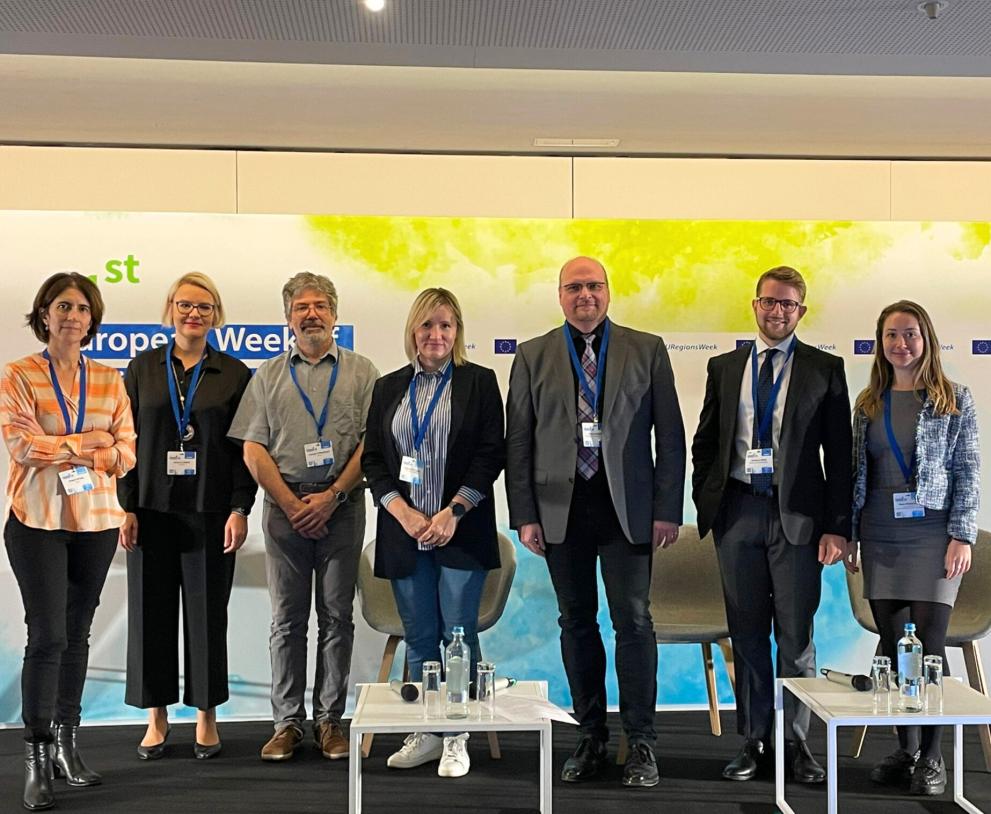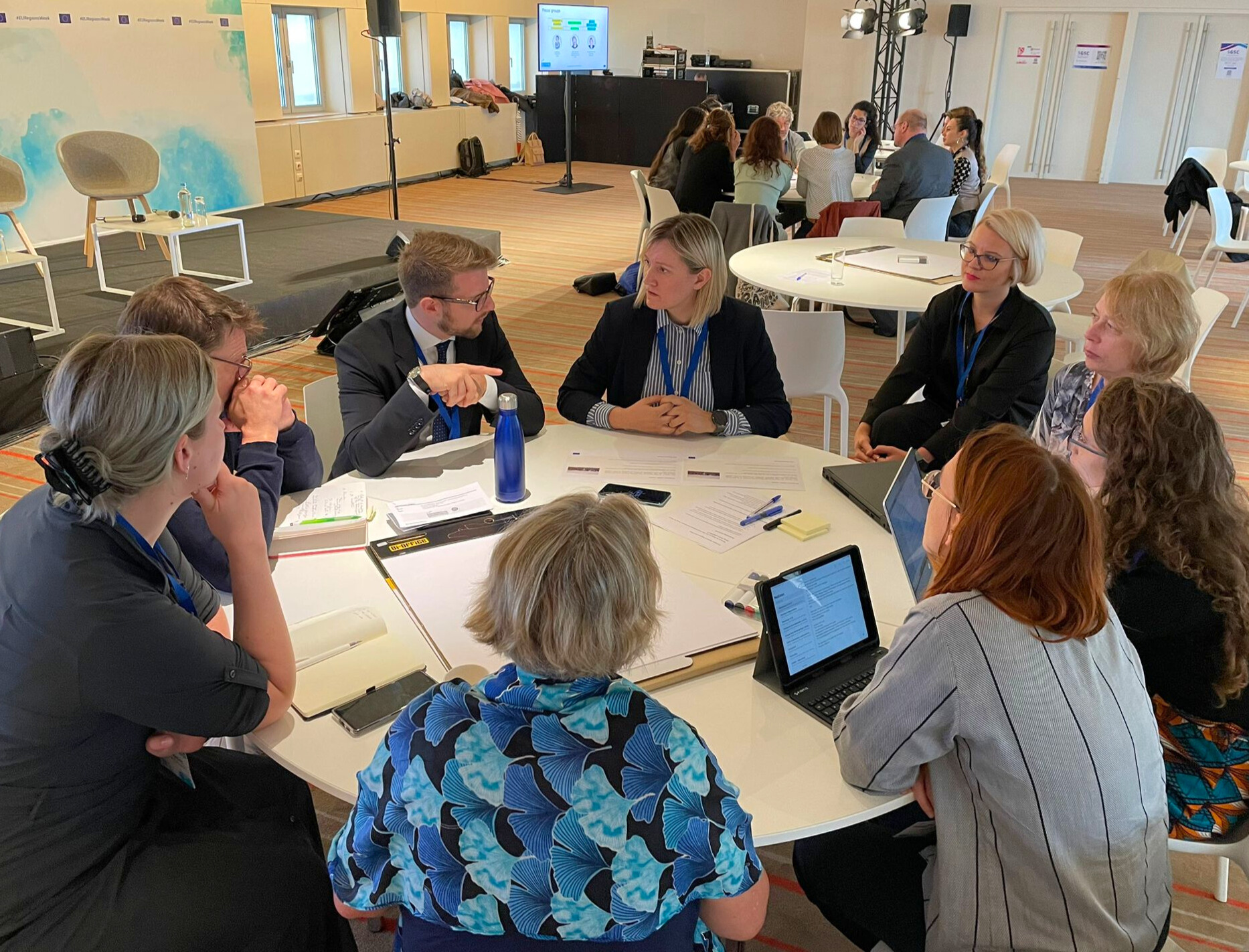
Article Credits: Prospect+
On 12 October 2023, during the European Week of Regions and Cities, PROSPECT+ in collaboration with the Covenant of Mayors Office, Smart Cities Marketplace, and Managenergy welcomed more than 20 active participants representing public authorities across Europe in a unique participatory lab "Access to finance for the local energy transition: how to move away from subsidies?".
Keynote speakers
Georg Houben, representing the European Commission's DG ENER, emphasized the challenges faced by cities and regions at the forefront of climate action and job creation due to the ambitious climate goals of FitFor55. He stressed the need for more than just EU, regional, and national funding to achieve climate neutrality by 2050, urging local authorities to tap into private finance.
Sylwia Slomiak from Eurocities provided an overview of Prospect+'s initial consultation findings, revealing that public authorities still require additional capacity, advisory support, and improved national regulations to adopt alternative financing models at the local level in Europe.
Tommaso Buso, representing Bankers without Boundaries, offered practical insights on sustainable investments from an investor's perspective, with a focus on effective project implementation. Both Georg and Tommaso highlighted the value of initiatives like the European City Facility and the Smart Cities Marketplace, which connect financiers with public authorities and offer municipalities advisory support and grants to bridge capacity gaps and develop investment concepts.

Angela Rivada, Laurent Chanussot, Sanela Mikulčić Šantić, and Tommaso Buso presenting their pitches.
Interactive participatory lab
The lab featured three case studies from Spain, France, and Croatia. Angela Rivada discussed investments in transport and building renovations, with a focus on Energy Performance Contracting. Laurent Chanussot highlighted the benefits of dedicated one-stop shops for local authorities in energy-efficient public building projects. Sanela Mikulčić Šantić shared insights into the impact of renewable energy cooperatives and crowdfunding, including how her region overcame barriers resulting from unfavourable national regulations by creating a micro-loans scheme.
Roundtable discussions facilitated a deeper exchange of ideas and focused on addressing the persistent barriers faced by local authorities. These discussions aligned with the findings of the Policy Dialogue consultations in Prospect+. Angela, Laurent, and Sanela highlighted common challenges and innovative solutions. While barriers are widely recognized, there's a demand for tangible metrics to demonstrate them to a broader audience. The groups also observed that smaller municipalities often need more infrastructure and knowledge to tap into available financial resources effectively.

The participants of the PROSPECT+ participatory lab discussed opportunities and challenges in their breakout groups.
Takeaways
There's a need for a collaborative effort involving both local and national bodies to standardize regulations across Europe. Participants noted a significant gap between administrative aspirations and practical implementation, especially in smaller municipalities. Nevertheless, they believed that with adequate support, challenges related to scale and expertise could be overcome. Moreover, smaller municipalities often require additional infrastructure and knowledge to effectively access available financial resources.
While various financing options are available, participants highlighted that not all are equally understood or accessible across member states. They stressed the importance of financial return on investment and market maturity, especially for energy projects, in increasing private finance for municipal investments. The group also agreed that transitioning away from subsidies can be financially advantageous and offer societal benefits. For instance, crowdfunding and microloans can be attractive alternatives for citizens, especially when banks provide lower interest rates than municipalities can offer for community projects.
Moving forward
In conclusion, Tommaso Buso stressed the significance of trust and credibility in energy projects, emphasizing the need for transparent communication between municipalities and investors. He suggested that municipalities should better showcase the viability and potential returns of their projects to attract investments. Furthermore, he underscored the importance of non-financial barriers, including socio-cultural factors, public trust, and stakeholder engagement, in determining the success of energy projects.
The overarching message from the session was clear: innovative financing is a crucial tool for expediting a sustainable energy transition, with growing momentum in Europe's regions and cities to understand and adopt these models. However, it was evident that local authorities require more support, and regulatory conditions must be harmonized across EU member states to provide equal opportunities for regions to effectively address their climate and energy challenges.
More information:
- Download the presentation.
- Download the agenda.
- Contribute your recommendations: join our Policy Dialogue.
Détails
- Date de publication
- 3 November 2023
